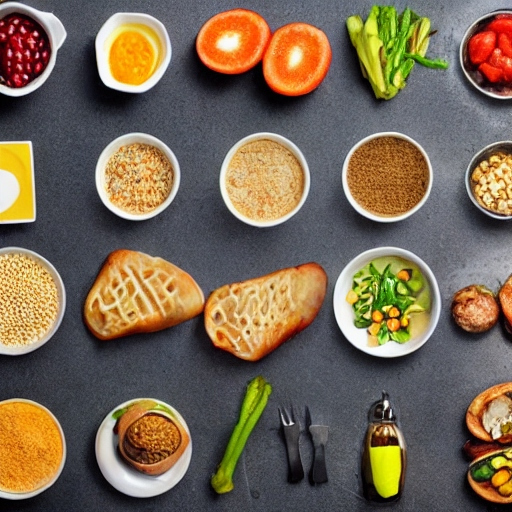A particular kind of food is referred to as "fasting food" when it is consumed during fasting periods. Fasting is a centuries-old practice that entails depriving oneself of meals, or specific food kinds, for a predetermined amount of time. Food intended for fasting is made to meet the requirements of the fasting time while also supplying vital nutrients. It provides nourishment for the body and spirit during periods of self-control and introspection.
The background and importance of fasting
Around the world, fasting has a rich history and is very significant to many different cultures and religions. For millennia, people have used it as a tool for spiritual development, self-control, and cleansing. Fasting is regarded in many religious traditions as a means of purifying the body and soul, exhibiting devotion, and establishing a stronger bond with the divine. For many people, fasting has been an integral part of their life, from traditional religious celebrations to age-old spiritual practices.
advantages of fasting for the body
There are several advantages of fasting for the body. The body experiences physiological changes during fasting that may be advantageous to general health. The body can benefit from better digestion, more insulin sensitivity, and higher fat burning when specific food categories are avoided. Food consumed during a fast is usually high in nutrients, offering vital vitamins, minerals, and antioxidants to help the body's natural detoxifying processes. It can also support a healthy weight, lower inflammation, and control blood sugar levels.
advantages of a food fast for the soul
Food consumed during a fast nurtures the soul as much as the body. People frequently report feeling more conscious and spiritually aware during fasting periods. People who refrain from overindulging in food might develop a closer relationship with both their inner selves and the outside environment. Emotional equilibrium, thankfulness, and mental clarity can all be enhanced by fasting. It can offer a chance for introspection, self-control, and personal development. Eating without food for a period of time can be an effective way to nourish the spirit and promote overall wellbeing.
Various kinds of meals for fasting
There are many different kinds of fasting food that can be eaten whilst fasting. The particular kind of food consumed during a fast will be determined by the fasting period's requirements as well as the dietary constraints of the individual. Plant-based proteins, fruits, vegetables, grains, legumes, nuts, and seeds are a few frequent types of food that are consumed during a fast. Generally speaking, these meals are high in nutrients and contain important vitamins, minerals, and antioxidants. Additionally, they contain a lot of fiber, which supports digestive health and may assist to induce feelings of fullness. Food during fasting can be cooked in a number of methods, such as sautéing, baking, steaming, or uncooked.
Value of fast food in terms of nutrition
Food consumed during a fast is incredibly nutrient-dense, giving the body the nutrients it needs to maintain general health and wellbeing. Rich in vitamins, minerals, and antioxidants, fruits and vegetables are frequently a mainstay of fasting diets. They are an excellent source of dietary fiber, which can aid in satiety promotion and digestion regulation. Complex carbs and fiber included in whole grains like brown rice and quinoa can help to balance blood sugar levels and provide you long-lasting energy. Legumes are a great source of plant-based protein, fiber, and important minerals. Examples of legumes are lentils and chickpeas. Nuts and seeds include a range of vitamins and minerals, protein, and good fats. During times of fasting, a variety of nutrients are provided by fasting meals to ensure optimum health.
How to include foods that you fast in your diet
Including foods from fasting in your diet is an easy and satisfying approach. Determine the precise food limitations and recommendations that apply to your fasting period first. This will assist you in choosing the right kinds of meals for your fast. Make sure your meals are well-balanced and packed with a variety of nutrients by planning them ahead of time. Throughout your meals, include a variety of fruits, vegetables, whole grains, legumes, nuts, seeds, and plant-based proteins. To make your meals engaging and fun, try out various recipes and cooking techniques. Pay attention to your body's signals of hunger and fullness and be cautious of portion amounts. Recall that developing a closer relationship with yourself and the world around you is just as important as providing your body with nourishment during a fast.
Recipes and meal suggestions for those who fast
To help you during your fasting time, consider these delectable and nourishing dish ideas and meal plans:
Quinoa Salad with Roasted Vegetables: Prepare the quinoa per the directions on the package, then set aside to cool. Roast a variety of veggies, including bell peppers, zucchini, and eggplant, in a separate skillet with a little olive oil, salt, and pepper. Toss with the quinoa and roasted veggies, then drizzle with the lemon vinaigrette. Add fresh herbs, such as parsley and basil, on top.
